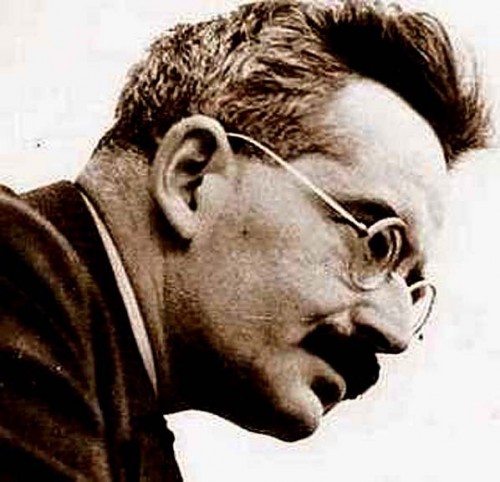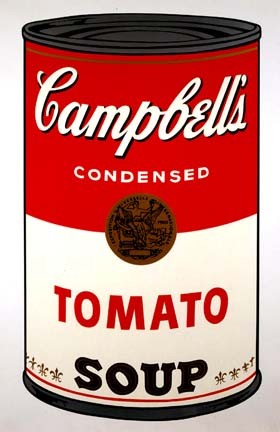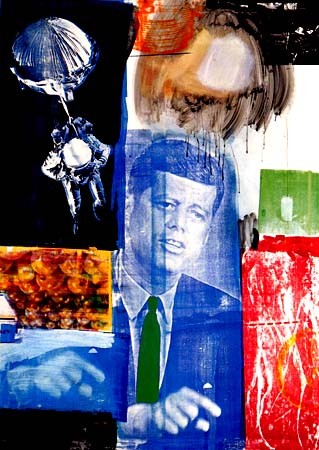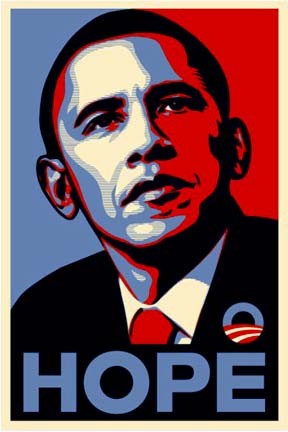Decline and Fall of Print Media
Rethinking Intellectual Property
By: Charles Giuliano - Apr 16, 2009
The motto "All the news that's fit to print" appeared on the front page of the New York Times in 1896, the first year of ownership by the Ochs-Sulzberger families. That was then. Perhaps now the motto should be revised to "All the news that fits."
How did I come up with that date of 1896? Well, on line, of course. It took about a minute for a Google search. How reliable is this information? Well, considering the source, not very but more than likely accurate. How would I fact check that? Well, more Google searches through multiple sites. It would tend to confirm what I already know.
This exposes a bit of hypocrisy I engaged in with my students a while back. They were assigned papers and it became readily evident that there was none of the traditional research involved. Instead of trudging off to the library to look up books and journals it was obvious that they never left their dorm rooms and computers.
Forget that we had discussed research techniques in class and the proper format for footnotes and bibliographies. Except at the uber graduate level, in the best university programs, these skills and attention to detail are a lost art form. There are probably no more than a dozen scholars worldwide that read the footnotes, or even the articles, in journals like The Art Bulletin which is published by the College Art Association. It exists for no more useful purpose than to assist tenure track professors to influence a few like minded peers.
In an affected rage I informed students that Wikipedia, which littered their papers, was not an acceptable "scholarly" source. There was a lot of bathos about the resultant mediocre grades. Many of them with arrogant temerity informed me that "I deserve a better grade than B- (the new upgrade from C+)." I remember busting my ass during freshman year and getting a C+ from the infamous professor "C+ Earl." I read the Iliad three times, cover to cover, before the final exam and still got a C+ for my essay. May you rot in hell forever C+ Earl.
Ironically, I frequently fact check on line while writing. Like that date for the New York Times motto. The internet is fast for that kind of information; like population in the New World in 1492. In matters of opinion, however, Wikipedia provides nothing but the facts and that is the real problem with kids, and culture nowadays. Presidential elections, for example, are won or lost based on clips and quotes, a few seconds of information during an evening news broadcast, but debated round the clock on CNN and Talk Radio.
In the Internet age every blogger is a pundit. As Gary Trudeau often points out with wit and irony in Doonesbury many of those bloggers are laid off reporters from the nation's ever shrinking newspapers. Given the facility to cut and paste many of the bloggers find their information from the on line sources of dinosaur media. But links back to on line sites, like the Globe and the New York Times, represents more than a third of their overall traffic.
Don't get me wrong, I love newspapers. Just don't buy them anymore. I used to get the Times and Globe home delivered. Read the Herald, mostly for its excellent sports section, over lunch. Still subscribe to a bunch of art magazines, Time, and the New Yorker. Like most folks I like to think I read the New Yorker every week but mostly just manage theatre and film reviews and one or two features. Of course I check out all the cartoons.
When we moved to the Berkshires a couple of years ago I found that the Times and Globe don't home deliver. At first, I drove down to Cumberland Farms every morning to pick up the papers. But on a cold winter morning, rather than knock the frost off the windshield, I got into the habit or reading the Globe and Times on line. My bad. I used to love the Sunday Times but at five bucks concluded that I really only read the arts section, a few book reviews, and maybe the magazine. Now I save the trees by doing that on line. Even then, am I alone in concluding that the Times has become ever less interesting? Particularly the arts section. I thought of subscribing to the Berkshire Eagle but decided that's a waste of time and money. If they run something of interest people tell me about it or e mail a link.
With all the downsizing of newspapers and closing of their international and national bureaus we are seeing more wire stories. The impact of that is scary. We recently attended and wrote about the Bellini opera "La Sonnambula" in a post modern production at the Metropolitan Opera. Searching on line I discovered that several national newspapers had Mike Silverman's devastating AP review. The headlines varied but the negative review prevailed. Editors ran the copy precisely because their readers, knowing little about opera, would be amused by a story that trashes it. How different from a time when a dozen or more critics for leading papers sent their critics. When new rooms take cuts arts critics are the first to go.
When I was the jazz and rock critic for the former Herald Traveler, back in the day, the office was often jammed as we met a midnight deadline. Rushing from a rock show at the old Boston Garden I skipped encores to beat the traffic. You composed a lead in your head driving to the heem, as my old buddy, Bill Cardoso, dubbed it. As I worked on a review Sam Hirsch was covering opening night at the Colonial while Harry Neville wrote a BSO review. You threw in filler body copy to hold the hole in the mailbag edition which ran at midnight and the reviews dropped into the replate for morning home delivery.
As a courtesy, trucks delivering the first or mailbag edition dropped a stack at the competition. If somebody had a scoop that gave the other paper an hour or so to react. There was the famous incident when Rose Walsh, the society writer for the Herald Traveler, was given an exclusive on the engagement of Jackie Kennedy to Aristotle Onassis. The HT editors printed a 'fake' mailbag paper which was dropped at the Globe. The folks on Morrisey Boulevard were stunned when the story broke. There was many a glass lifted at Foley's over that stunt. Them's was the days.
It was fun to hit Chinatown for a won ton after filing and pick up the morning Herald as it was dumped on the streets. That early edition was so fresh that the type stood up like Braille. I would read it before turning in.
That habit of next day posting after an opening is still with me. Recently I posted a review of "Trojan Barbie" at A.R.T. then looked at the morning Globe for the Louise Kennedy review.. Nothing. That shocked me. Press night was a Wednesday, April 1, and the review was published on Saturday, April 4. I thought the Globe was a 'daily' paper. What happened to that glorious Broadway tradition when the cast gathered at Sardi's and waited for the early reviews?
Here at Berkshire Fine Arts we work hard posting original content. Last week, for example, we had a 'scoop' during an interview with Kate Maguire the CEO of Berkshire Theatre Festival. Contrary to rumors about a falling out in a long standing relationship, she stated "Richard Chamberlain will be back." This was quickly picked up by a site devoted to the 75-year-old actor. They appropriated my text and original photograph without a credit line but provided a link to the BFA site. We consider that fair play and are delighted to get the additional traffic.
Last summer Larry Murray interviewed and photographed the actor Randy Harrison who was performing Lucky at BTF in Beckett's "Waiting for Godot." That article and Murray's photo were picked up globally. For a week there was a spike in visits and we continue to get Google hits for the article. Last fall we were astonished to find both the review of "Godot" and Larry's interview translated into Italian. The site even added their own copyright to the end of the articles. Now that was cheeky. As a bit of turnaround we reposted the articles in Italian. It was a bit of an in joke here at BFA. There was another circulation spike as Google picked up the coverage.
All of this makes one rethink the notion of intellectual property and appropriation. In the arts we often refer to the prescient essay, published in 1935, by the philosopher Walter Benjamin "The Work of Art in the Age of Mechanical Reproduction." He explored the issues of reproduction and its implications long before computers, copy machines, or I pods. Most of us, with the click of a mouse, probably appropriate as many times each day as we lie and cheat.
In the blogosphere of You Tube, My Space, Twitter, Facebook and endless texting the durability of information is measured in seconds. To keep your name and persona up and running you have to post constantly. If you get connected expect to be barraged by a dozen messages by certain individuals daily. These are as profound as "I leave for Italy tomorrow" "Why did I drink so much last night" or "I am doing five loads of laundry." Expect inane images of pets, self generated pinups, and kids. Like, you know, who cares? And yet we get sucked in, well, speak for yourself man, by that endless quest for a nugget of insight and inspiration.
This ubiquitous communication both enhances and threatens democracy. Yes, it is the ultimate expansion of free speech but may also be the gorilla in the room. This onslaught of information is no guarantee of insight or inspiration. That endless texting by kids may foist their fragile personas into cyberspace but it does not necessarily develop character and a mature understanding of global culture.
There is an enormous difference, for example, between students actually reading the Iliad and downloading some stuff about it. Of course, they don't actually have the time to read books on the syllabus because they are so busy social networking. Sometimes even during a class. This results in poor evaluations for professors because students complain that they haven't learned anything. Duh. How about reading the books? And, like, discussing them during class. Professors who get it, generally the younger faculty, have reduced expectations and are focused on making students feel better about themselves. Old C+ Earl, the bastard, didn't give a fig about hurting our feelings.
During a recent conference an artist/ graphic designer, spoke with passion about being ripped off by Disney. Of course, if it's the other way around Disney will have you for lunch. Because of the Sonny Bono Law, and the copyright extensions it legislated, Mickey Mouse won't slip into eminent domain during our lifetime. Ditto for RCA's Elvis Presley catalogue.
In art schools kids learn to appropriate. The professors trace its history back before Walter Benjamin to Marcel Duchamp putting a moustache on da Vinci's "Mona Lisa" or writing the pun "L.H.O.O.Q." under it. As Picasso stated, "Minor artists borrow but great artists steal." In that sense artists have been appropriating, quoting, stealing, and ripping each other off since the beginning of time. The Bible states that "There is nothing new under the sun." Originality is a conceit.
In the current media paradigm what passes for originality, or innovation, is to cut and paste faster than the competition. News is the ability to run with information for as long as it lasts. What is killing the evening network news, for example, is that by dinner time it is all a rehash. "Film at 11" is even more redundant. The only real news and information is likely to occur during the weekly broadcast of "60 Minutes."
Artists have learned that appropriation comes at a cost; but only when rich and famous enough to attract the attention of the owner of a copyright. The use of a stock news image of Barack Obama by Shepherd Fairey is a case in point. He is being sued by the original photographer and AP which ran it. Fairey is counter suing for infringement of its fair use for editorial comment. The iconic image he created is, arguably, an entirely different work of art than its source. Others point out that, given his deep pockets as a very successful artist, Fairey might have purchased use of the image or paid royalties to the photographer. Because of lawsuits, for example, the late pop artist, Robert Rauschenberg, stopped appropriating from the media and started shooting his own images for collages. In general artists don't like to talk about copyright infringement. Or "sampling" in rock and rap music.
But there is a double standard at work. If, for example, you steal from Disney expect the wrath of god to descend. But Warhol silk screened Mickey Mouse. Perhaps he was just big enough to get away with it. Campbell's soup considered suing Warhol in the 60's but wisely decided that it was great free publicity. That photographer of Barack Obama, whose name escapes me, is now famous because of Shepherd Fairey. Instead of a lawsuit by AP which bought and "owns" the image the hack photographer, whose image has now become so iconic as "art," should say thank you. Richard Prince is also being sued by an ungrateful photographer, Remember Abbie Hoffman's "Steal This Book" in 1971? Post just about anything of interest and expect to get ripped off. Sure, it would be nice to get paid, but it's ok to be famous. For a few seconds.








